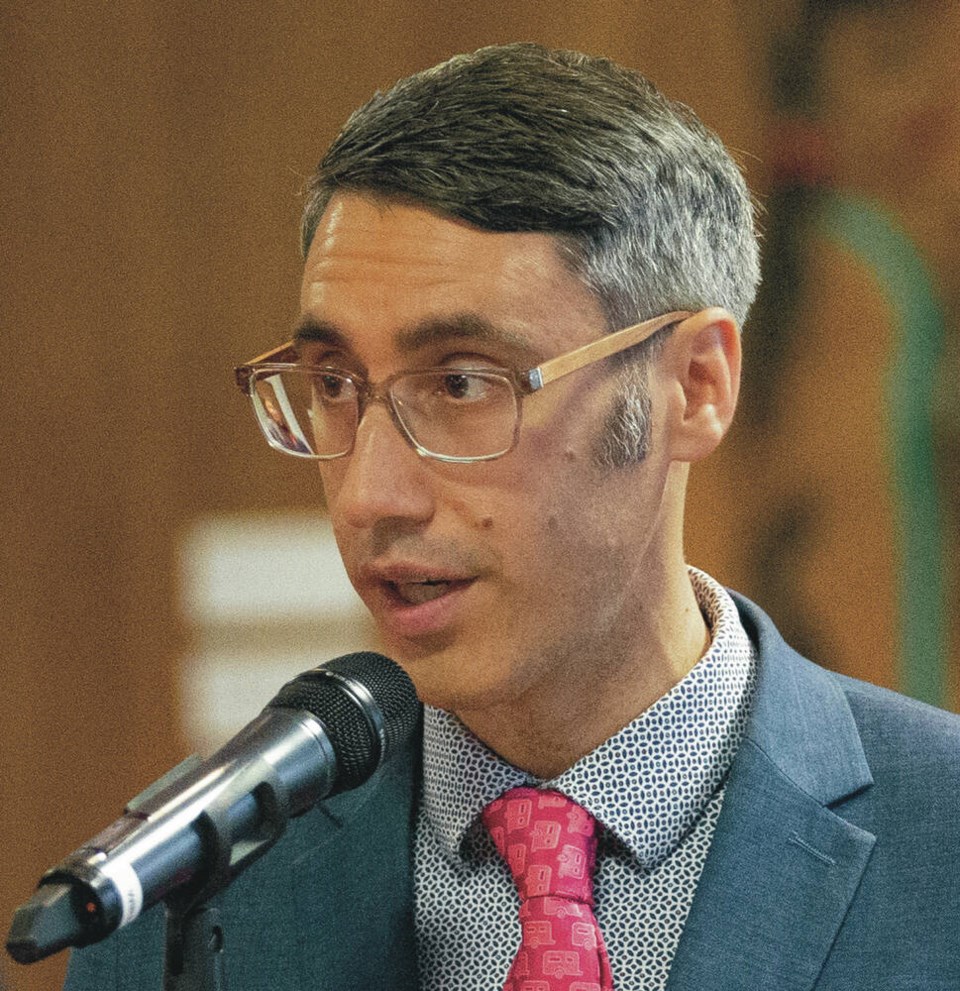A commentary by a Victoria councillor.
In the past two years, councils across the region have adjusted their remuneration and benefits to keep up with inflation and the realities of working an increasingly complex job.
In 2022, Oak Bay voted itself a 57 per cent increase, while Sooke council approved a 27 per cent increase.
In 2023, Colwood council voted itself a 57 per cent wage increase, while Central Saanich approved a 43 per cent increase.
These percentages seem high until one realizes that the pay is inadequate across the region.
The role of councillors has become increasingly complex in the past 15 years — which is the last time the City of Victoria underwent a salary review — and at least in the more urbanized areas of the province, the job isn’t the part-time role it once was.
Even where it is part-time, it’s demanding and a substantial time commitment.
In Victoria, the recent increase in pay still means that councillors will make less than the starting wages of a policy analyst at the city or province, and the pay is less than the median household income in the city.
The change in salary is the result of an external governance review that the city undertook, followed by a third-party remuneration consultant, who found that Victoria has fallen behind on pay when measured against its comparator cities, many of which follow the “half the mayor’s salary” rule, which is what Victoria has adopted.
The governance review was, in fact, a creature of the last council. It was brought to council in July 2022. If the past council had done its job and implemented the recommendations of the governance review, it would not have fallen to the current council.
But as with so many pressing issues — the Crystal Pool replacement project, Missing Middle, governance updates, investment in the arts, and sheltering in parks (more on that topic soon) – solving the problems faced by Victorians has become the work of the present council, which has tackled those issues head-on.
Our council has now implemented about 95 per cent of the recommendations in the governance review, and the final five per cent is in process.
There was nothing stopping the previous council from accomplishing this work.
Here is what the governance review had to say about Victoria council being a significant time commitment:
“The majority of members of council and senior staff indicated that most councillors are putting in full-time hours to fulfill their roles. Responding to correspondence, reading extensive agenda materials, and long meetings were frequently identified as requiring a significant amount of time.”
Further, the report continues, “the level of current remuneration was identified as a potential barrier for candidates who may otherwise be interested in running for council, as the demands of the role mean most would not be able to maintain other regular employment, and economic circumstances may limit who can be a member of council.”
In other words, the question of salary is not only a fairness and governance issue, but one that relates directly to service levels and equity considerations.
With fair wages, Victorians can and should expect that councillors are able to focus on this job, and attracting diverse candidates is a value that benefits the community as a whole.
Is it any surprise that of the dozens of councillors and mayors across the region, reportedly only two in the entire region are renters – both in Victoria – while more than 60 per cent of Victoria residents rent their homes?
This cannot be a job solely for people of means, who can manage on reduced wages and insufficient benefits.
Having worked this job for 16 months, I can say that anyone working it less than a full-time job is either misrepresenting their hours or isn’t putting in the time that the job requires.
In an era of high inflation, unaffordability, and an ever-increasing cost of living, I recognize that pay raises for elected officials are not a priority for the public – not in Oak Bay, not in Colwood, not in Central Saanich, and not in Victoria.
But fair wages for councillors — whether they’re in full-time or part-time council positions — is in the public interest.
Good governance requires a level of service and dedication that fair wages can enable.
>>> To comment on this article, write a letter to the editor: [email protected]



